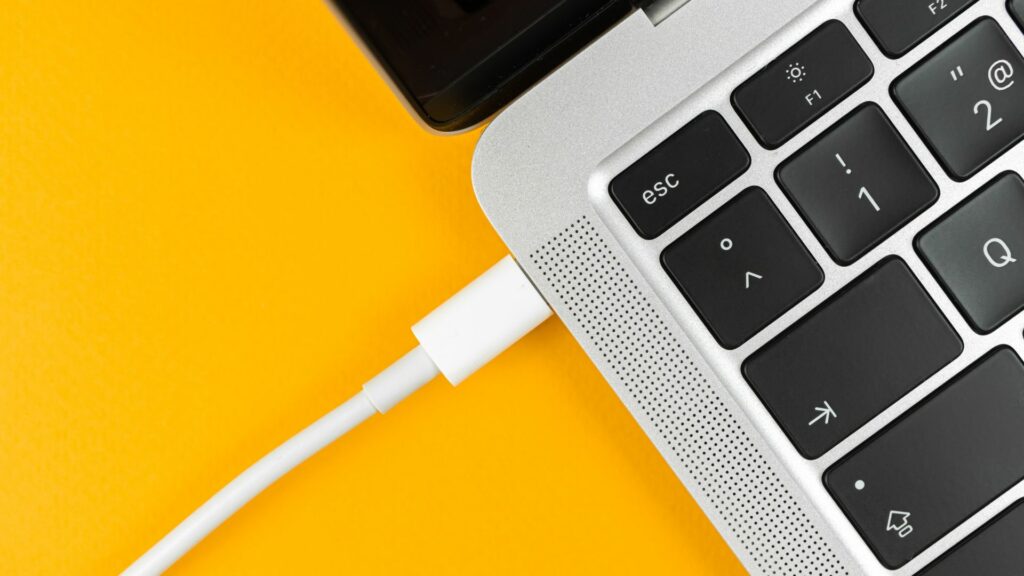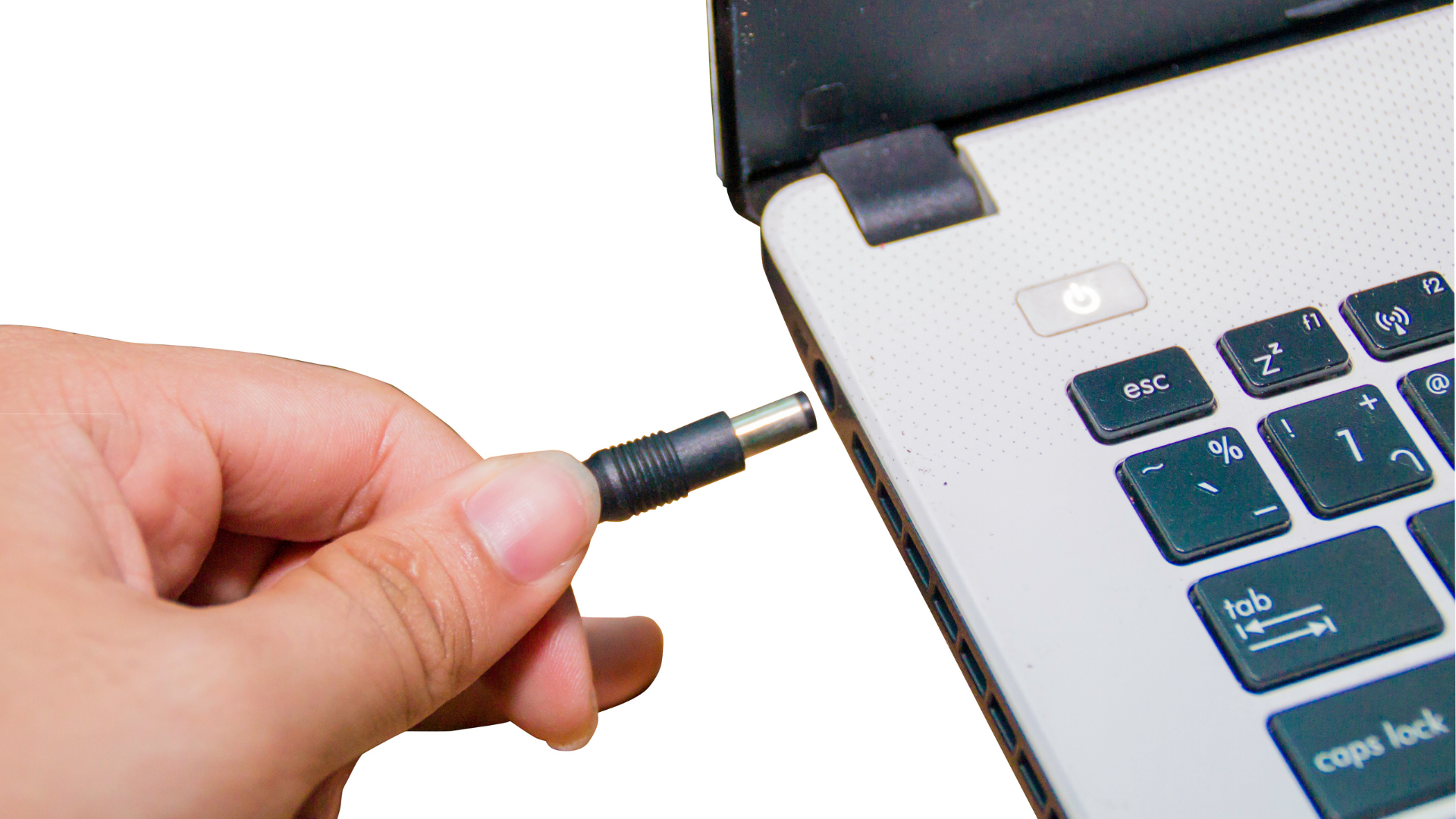A 65W charger could operate the 45W HP laptop without harming the battery. If anything, the charger would charge the battery at a faster rate.
Is It Safe?
Yes, it is. The concept sounds dangerous because it exposes the laptop to a higher wattage. Many electronic devices tend to overload and even explode when you plug them into a power source with a higher wattage. But laptops are different. Consider the following:
1). What Is The Wattage?
The wattage refers to the volume of current a charger can deliver. For instance, a 45W charger will transmit 45 joules of energy per second. The higher the wattage, the more energy the charger can transmit. Therefore, a 65W charger will provide more power than its 45W counterpart.
2). What Do The Watts Mean On A Charger?
This is where people go wrong. They expect a 65W charger to deliver 65 watts to a 45W laptop. And if that were the case, experts would discourage you from connecting higher-wattage chargers to lower-wattage laptops. The laptops wouldn’t survive.
But that is not how things work. A charger’s wattage simply reveals the maximum amount of energy the charger can safely deliver. In other words, a 65W charger can safely transmit 65 joules of energy per second. That doesn’t mean it will always deliver 65 joules.
3). How Do Laptops Work?
The laptop controls the current flow. For instance, a 45W laptop will only consume 45W or even less, depending on its demands. Computers are not perfect. They have limitations.
Agus Ramelan, Dadang Lukman Hakim, and M Adli Rizqulloh (Bandung Institute of Technology, Indonesia Universitas Pendidikan) published a paper noting that laptops couldn’t automatically connect and disconnect the charger in response to a user’s needs and desires.
They recommended a device capable of adjusting the battery’s charging capabilities without forcing the user to unplug the laptop. Such devices trick laypeople into thinking their laptops are vulnerable to overloading and overcharging when you connect them to higher-wattage chargers.
But that is not true. Laptops have mechanisms that limit the amount of electricity they can draw. Therefore, a 45W computer will only pull the power it needs from a 65W charger. The 65W charger cannot overwhelm the 45W laptop.
4). Does The Voltage Matter?
The voltage is the most important aspect of this equation. You can connect a higher-wattage charger so long as the voltage is the same. Laptop factz has given the example of a 90W 19.5V charger and a 90W 21V charger.
A 90W 19.5V charger will safely charge a 65W 19.5V laptop. However, a 90W 21V charger is more likely to fry the 19.5V laptop. In both cases, the wattage is the same. The problem lies with the difference in voltage.
What does this mean? A laptop can ignore significant differences in the wattage and amperage if the voltage is the same.
5). What About The Connector Type?

If the voltage is the most critical aspect, the connector type is a close second. In fact, some will elevate the connector type over the voltage because the wrong connector type will prevent the 65W charger from plugging into a 45W laptop.
This is good because it prevents laypeople from using the wrong charger. But it can also become an annoyance because it prevents you from using cheaper, non-genuine chargers. This is a problem for consumers with budgetary constraints that can’t afford genuine branded chargers.
Will Using A Higher Wattage Charger Charge Your Laptop Faster?
You should match the charger’s wattage to the laptop’s rating to optimize the performance. However, some people gravitate towards higher-wattage chargers because they expect faster charging speeds. They are not entirely wrong.
According to this HP guide, fast charging mechanisms in phone and laptop chargers work by increasing the wattage they deliver to the device. A fast charger can charge an HP laptop to completion within 30 minutes, which is impressive.
However, fast charging is complicated. In fact, most tech companies won’t reveal the inner workings of their fast chargers. Keep in mind that fast charging is not a simple matter of delivering more current within a shorter duration.
Do you know why technicians discourage consumers from connecting lower-wattage chargers to higher-wattage devices? Chargers don’t push electricity into devices. The devices pull the current out of the charger.
Therefore, the higher-wattage device will cause the lower-wattage charger to overheat by forcing it to transmit more power than it can tolerate. Overheating is the one risk manufacturers want to avoid when they pair higher-wattage chargers with lower-wattage devices or vice versa.
But overheating is the one outcome you may cause if you overwhelm a laptop with a higher-wattage charger. In other words, there’s an art to creating a fast charger that pours more current into a computer to charge it within thirty minutes without causing the adapter or the battery to overheat.
And even when you secure a reliable, fast charger, you need a compatible laptop to benefit from the charger’s fast-charging capabilities. What does this mean for you? You are discouraged from deliberately buying a higher-wattage charger for the sake of charging your laptop at a faster rate.
Remember that laptops have mechanisms limiting the current they pull from a charger. Therefore, don’t expect a 45W laptop to pull 65 watts from a 65W charger unless the computer was designed to do just that. That said, a laptop is more likely to charge faster if you connect a charger with a higher wattage.
Using A Higher Wattage Charger Damages Your Laptop?
This is the primary concern consumers express whenever they buy a higher-wattage charger. This is what you should know:
1). Mixing higher and lower wattages can lead to overheating. However, the laptop has circuitry that won’t permit a charger to overwhelm the battery. Therefore, a higher-wattage charger is unlikely to harm the computer.
2). If your battery’s performance and lifespan have deteriorated because of the higher-wattage charger, don’t be so quick to blame the charger. People have varying opinions regarding the best way to charge a laptop.
Dennis A Lupala published a paper arguing that continuous charging habits are harmful to a battery, especially in comparison to intermittent charging. The report agrees with technicians who think laptops are better off if you charge the battery to 90 percent and then disconnect it.
They think that charging the laptop continuously is detrimental. But that rationale doesn’t apply to modern computers that limit the current flowing to the battery.
3). A lower-wattage charger is a more significant threat to the laptop because it reduces the computer’s performance. The laptop will take a longer time to charge to completion.
65W Charger VS 45W Charger
If you have the option, use the 45W charger to run a 45W laptop. The manufacturer will match the charger’s wattage to the computer’s capacity because this is the safest option. A higher-wattage charger can lead to overheating.
This is not a guarantee. Laptops are smart enough to regulate the current flowing between the charger and the battery. However, you can’t trust a low-quality higher-wattage charger to behave.
Cheaper chargers have defects. Lower-wattage chargers are equally problematic because they will compromise the laptop’s performance, especially if you prefer to use the computer while charging the battery.
A 45W charger is essentially perfect. Using a 45W charger to run a 45W laptop has no downsides.
How To Determine Power Requirements Of Your Laptop?
Eco Cost Savings has highlighted a study that looked at nearly 150 of the most popular laptops on the market. The study concluded that most laptops use anywhere between 30 watts and 200 watts.
65W is the most common rating for a conventional laptop. But gaming laptops can use as much as 320 watts. To determine your laptop’s capacity, check the charger. If you want to buy a new charger, the old charger will show you the specs to prioritize.
The brick has a label revealing the charger’s attributes. You can also look for a similar label on the laptop’s battery. But modern laptops are tricky in this area because their batteries are difficult to access.
If you’re not comfortable disassembling the laptop to find the battery, check the computer’s properties. Besides revealing the operating system, RAM, and storage, the properties will show you the battery’s specs.
If you still need clarification, visit the official website. Better yet, contact the brand’s customer support personnel, submit your laptop’s model number, and ask them to identify the battery’s wattage. This assumes that you haven’t changed the battery.

